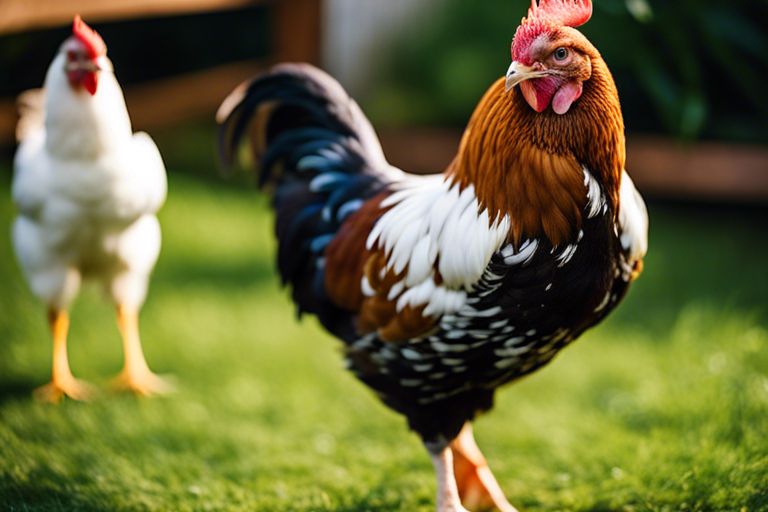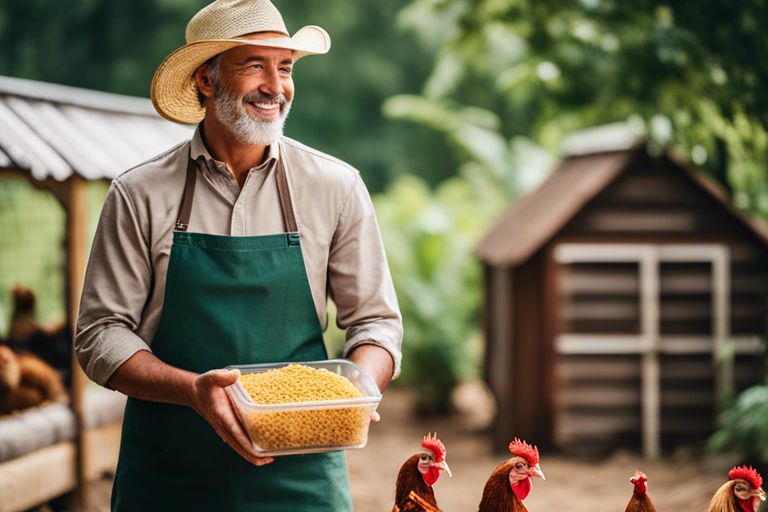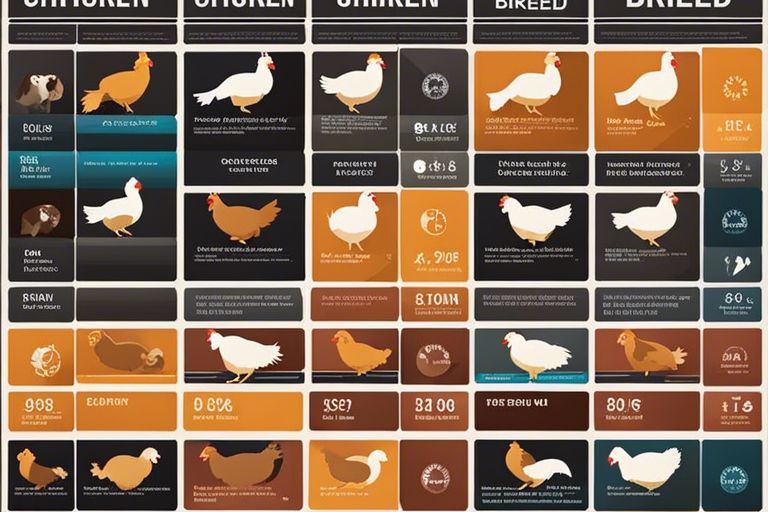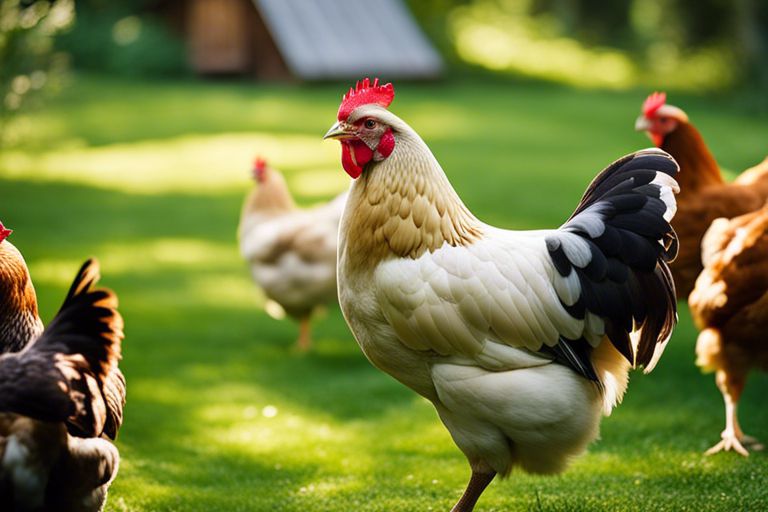Most small backyard flock owners want to ensure they are choosing the best chicken breeds that will thrive in their limited space. With respect to selecting the right chickens for small backyard flocks, factors such as temperament, egg production, and space requirements are crucial. Here, we will discuss some of the top chicken breeds that are well-suited for small backyard environments, allowing you to enjoy the delights of raising chickens in your own backyard.
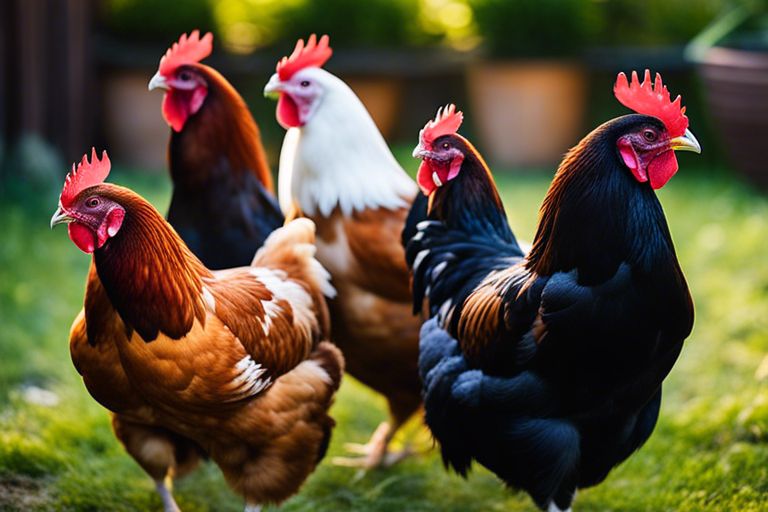
Characteristics of Ideal Backyard Chicken Breeds
Size and Space Requirements
Breeds suitable for small backyard flocks should generally be of a medium size to ensure they are manageable in confined spaces. Opt for breeds that are not overly large, such as bantam varieties, so they do not require a lot of room to roam. This makes them more adaptable to urban and suburban settings where space is often limited.
Temperament and Behavior
The temperament and behavior of chicken breeds are crucial considerations for backyard flock owners. Look for breeds known to be docile and friendly towards humans, as this will make handling and care easier, especially for beginners. Additionally, selecting breeds that get along well with others can help maintain peace within the flock and reduce the likelihood of aggressive behavior.
It is important to note that while each breed has its general characteristics, individual chickens may vary in temperament. Regular handling and socialization can also influence a chicken’s behavior, so spending time with your flock from a young age can contribute to a more friendly and sociable group.
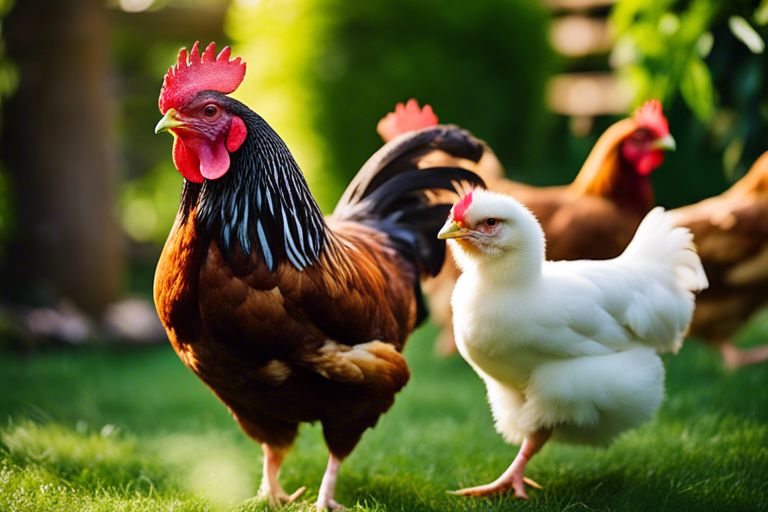
Top Chicken Breeds for Small Spaces
Bantam Chickens
One of the best choices for small backyard flocks are Bantam chickens. These pint-sized chickens are perfect for limited space as they require less room to roam compared to standard breeds. Not only are they adorable and easy to handle, but they also come in a variety of breeds and colors, making them a popular choice for backyard enthusiasts.
Silkies
One popular breed for small backyard flocks is the Silkie chicken. These fluffy chickens are known for their gentle temperament and unique appearance. Silkies have soft, fluffy feathers that lack barbicels, giving them a silk-like appearance. They are perfect for urban settings as they are quiet and can adapt well to smaller spaces.
Chicken enthusiasts often choose Silkies not just for their charming looks, but also for their broodiness and ability to hatch eggs. Their friendly nature makes them great additions to a family flock, especially for those with children.
Care and Maintenance of a Small Flock
Feeding and Nutrition
For a small backyard flock, feeding and nutrition are necessary aspects of care to ensure the health and well-being of your chickens. Any responsible chicken owner should provide a balanced diet that includes a mix of commercial feed, fresh water, and access to grit and oyster shell for calcium intake. Additionally, offering treats such as fruits and vegetables can be a great way to provide variety and keep your flock happy.
Health and Veterinary Care
On top of regular feeding, health and veterinary care are crucial components of maintaining a small flock. It is necessary to monitor your chickens for signs of illness or distress and seek professional veterinary advice when needed. Regularly inspecting your flock for parasites, keeping the coop clean, and following vaccination schedules recommended by a poultry veterinarian can help prevent common health issues.
It is important to establish a good relationship with a poultry veterinarian who can provide guidance on preventive care and treatment options for common chicken ailments. Being proactive in maintaining the health of your small flock will ultimately lead to happier and more productive chickens.
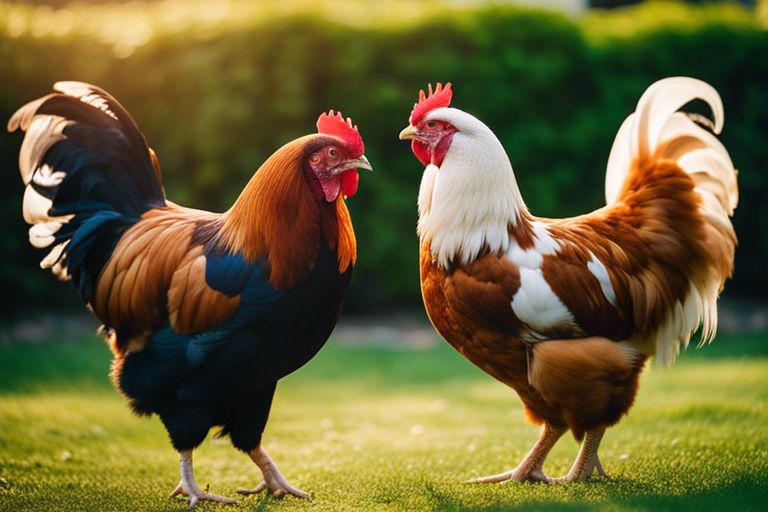
Enhancing Your Flock’s Environment
Coop Design and Setup
For a small backyard flock, the coop design and setup are crucial for the health and well-being of your chickens. Make sure the coop is spacious enough to allow each bird to have at least 4 square feet of space. Provide adequate ventilation to prevent moisture build-up and ensure a clean and dry environment. Include roosting bars for the chickens to perch on at night and nesting boxes for egg-laying.
Outdoor Space and Enrichment
Enhancing your flock’s outdoor space is important for their overall happiness and health. Allow your chickens access to a secure outdoor area where they can roam, scratch, and peck. Provide enrichment activities such as perches, dust baths, and objects for them to peck at to prevent boredom and encourage natural behaviors.
To keep your flock healthy and happy, consider rotating their outdoor area to prevent the ground from becoming barren and infested with parasites. Providing areas of shade and sunshine will also give your chickens the opportunity to regulate their body temperature and soak up Vitamin D from the sun.
Conclusion
Now that you are familiar with some of the best chicken breeds for small backyard flocks, you can make an informed decision based on your specific needs and preferences. Whether you prioritize egg production, temperament, or unique feather colors, there is a breed out there perfect for your backyard setup. Remember to consider factors such as climate, space, and local regulations when choosing the right breed for your flock. By selecting the ideal chicken breed, you can enjoy the rewards of raising chickens in your backyard for years to come.
FAQ
Q: What are the best chicken breeds for small backyard flocks?
A: The best chicken breeds for small backyard flocks are typically ones that are known for their friendly disposition, easy care requirements, and ability to adapt to various climates. Some popular breeds include Rhode Island Red, Australorp, Orpington, and Wyandotte.
Q: What factors should be considered when choosing chicken breeds for a small backyard flock?
A: When choosing chicken breeds for a small backyard flock, factors such as climate compatibility, egg-laying capacity, temperament, and space requirements should be taken into consideration. It is important to select breeds that will thrive in your specific environment.
Q: How many chickens should I start with for a small backyard flock?
A: For beginners, starting with 3-5 chickens is recommended for a small backyard flock. This number allows for a manageable flock size while still providing a social environment for the chickens. It is important to consider the space available and local regulations regarding flock size.
Q: What should be included in a chicken coop for a small backyard flock?
A: A chicken coop for a small backyard flock should include roosting bars, nesting boxes, adequate ventilation, and protection from predators. The coop should be spacious enough to allow for natural behaviors such as scratching and dust bathing.
Q: How should I care for and maintain chicken breeds in a small backyard flock?
A: To care for chicken breeds in a small backyard flock, provide a balanced diet, fresh water, regular cleaning of the coop, and access to outdoor space for exercise. Regular health checks and parasite prevention are also important to maintain the overall well-being of the flock.
Q: What are some common health issues that chicken breeds in small backyard flocks may face?
A: Common health issues that chicken breeds in small backyard flocks may face include respiratory infections, mites and lice infestations, and egg-laying issues. Regular monitoring of the flock, proper nutrition, and good hygiene practices can help prevent these health issues.
Q: Can different chicken breeds coexist in the same small backyard flock?
A: Yes, different chicken breeds can coexist in the same small backyard flock. It is important to introduce new chickens to the flock gradually and provide enough space and resources for all the chickens to thrive. Monitoring the flock for any signs of aggression or bullying is also important when introducing new breeds.
